In the 1960s, Boeing’s aerospace division became a large part of its business, employing some 55,000 people by 1962. Boeing had space facilities at two NASA centers and at Cape Canaveral in Florida, site of many space launches. The division built the first stage of the Saturn launch vehicles that sent the Apollo spacecraft toward the Moon. It also built the lunar orbiter, which photographed the Moon’s surface in 1966 to help NASA find a safe place for Apollo astronauts to land.
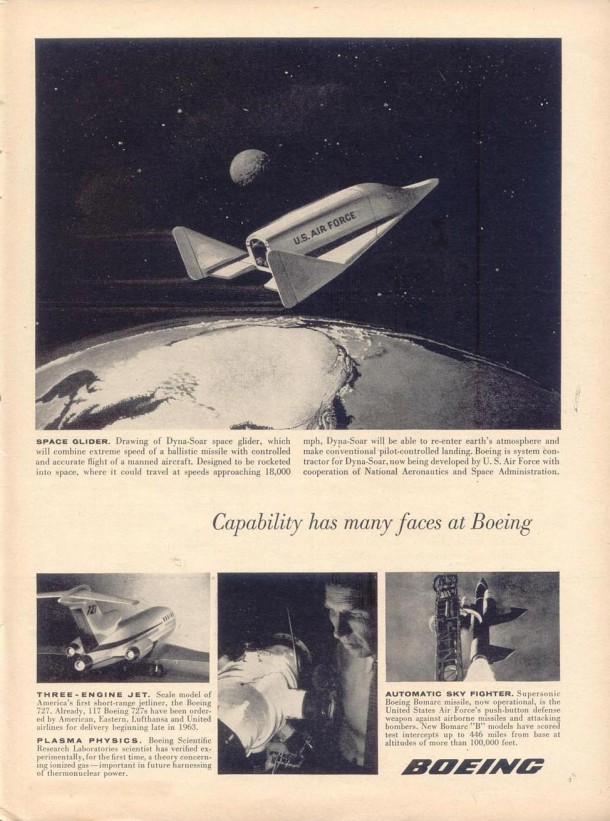
Boeing: Space Glider, 1961
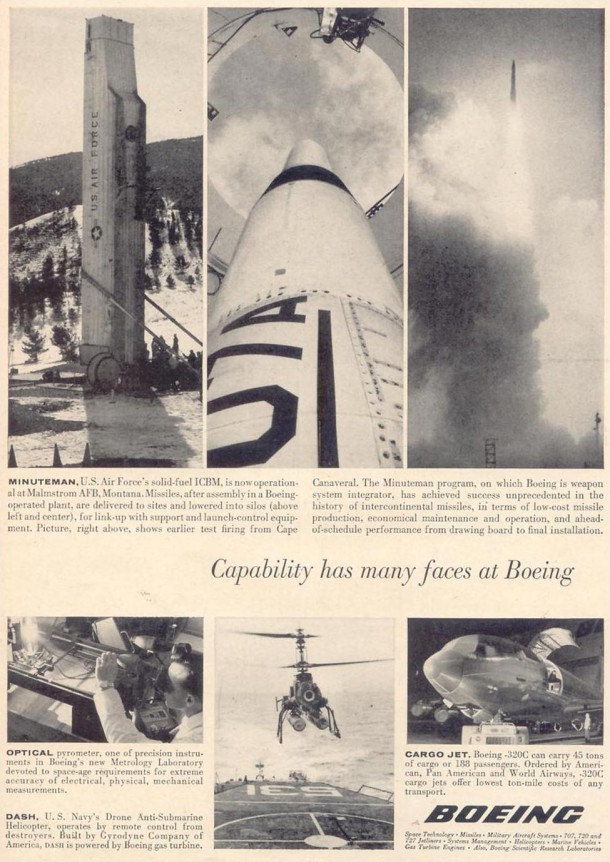
Boeing: Minuteman, 1963
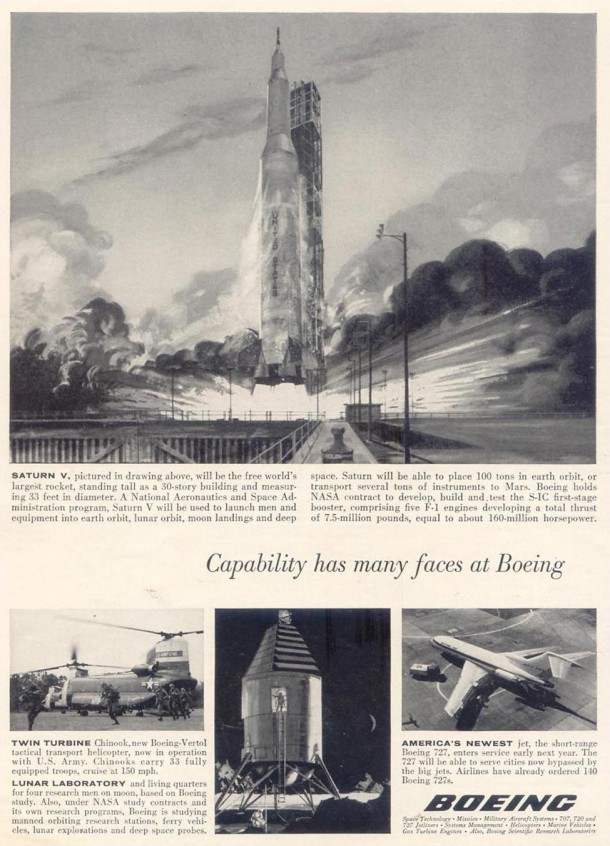
Boeing: Saturn V, 1963
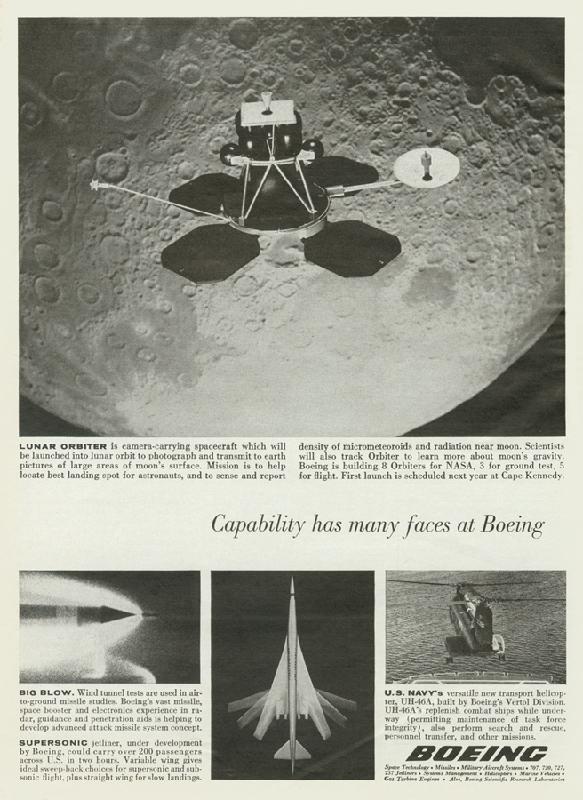
Boeing: Lunar Orbiter, 1965
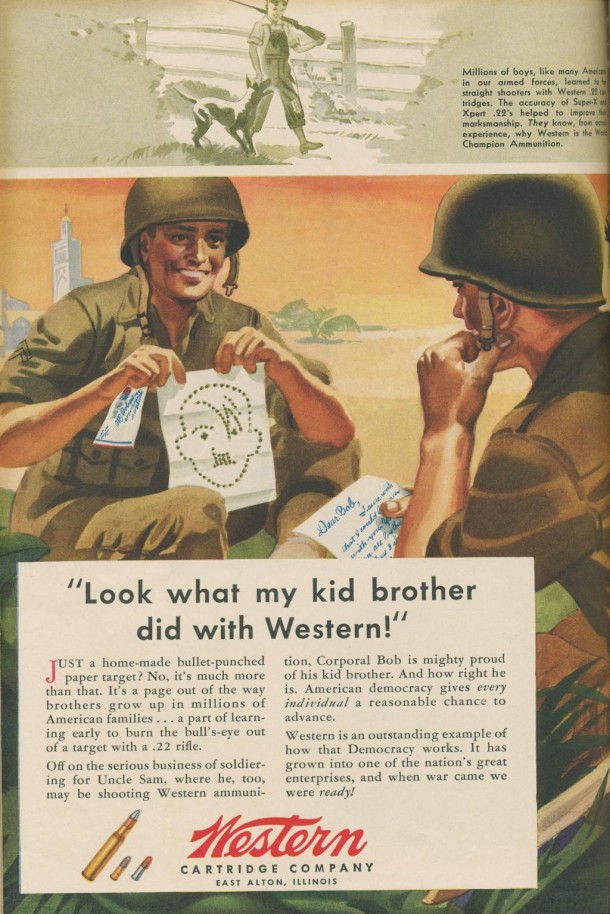
Western cartridge company, 1943
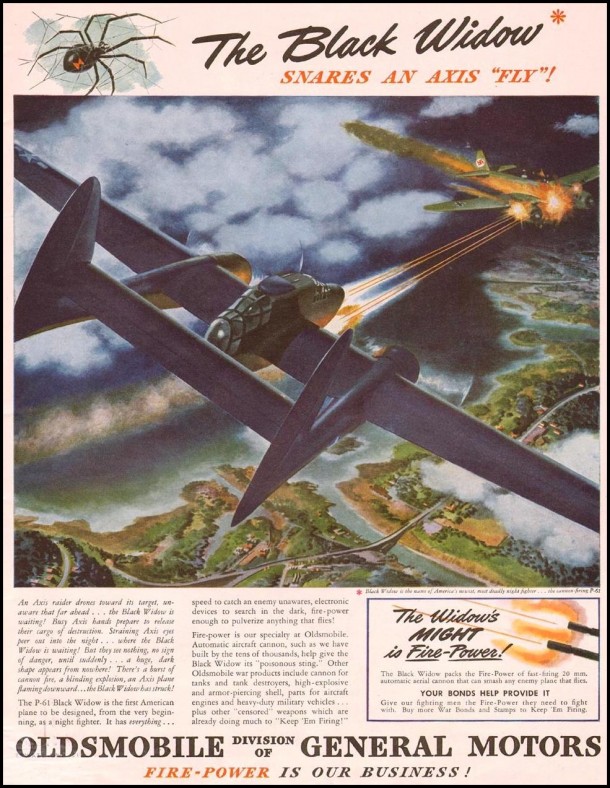
Oldsmobile division of General Motors, 1944
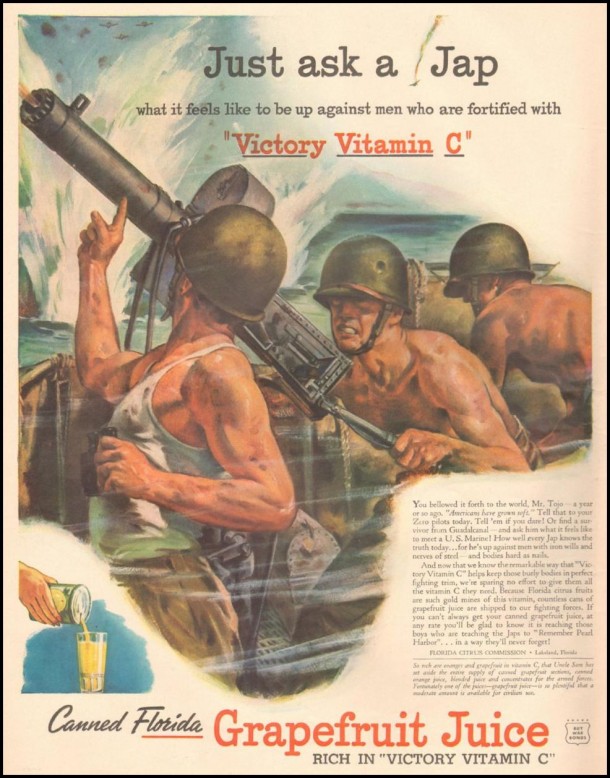
Florida canned grapefruit juice, 1943
Coca-Cola was one of the three official beverage sponsors with a Getraenkedienst (beverage service) at the 1936 Olympics in Berlin. Athletic competition was a Nazi ideal and the Coca-Cola GmbH cashed in heavily on this infatuation by becoming one of the biggest sponsors of sports events, most notably the annual Deutschlandrundfahrt (National Bycicle Championships) and the Soccer Cup.
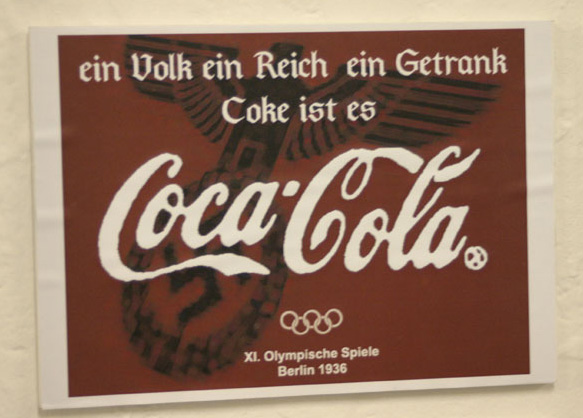
Ein Volk, Ein Reich, Ein Getrank (One People, One Nation, One Drink) Olympic Games in Berlin 1936
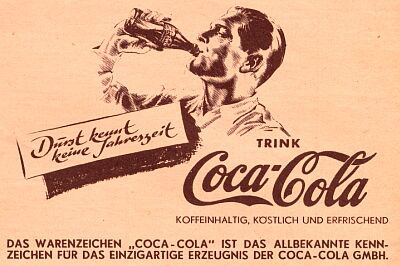
Coca-Cola ad Third Reich 1935
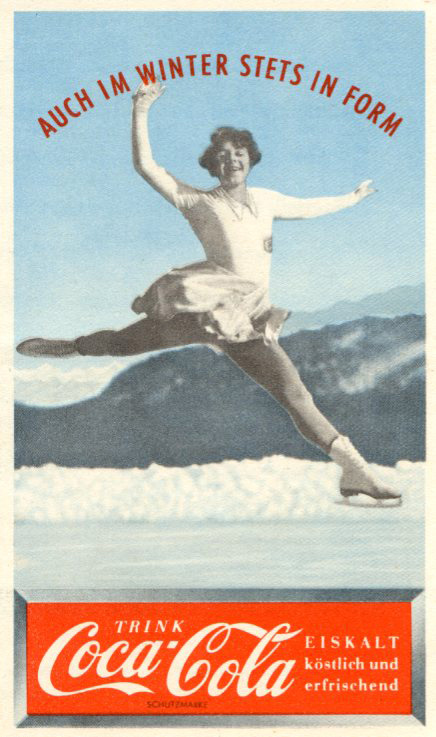
Coca-Cola ad Third Reich 1936
The item pictured below is a Coca-Cola advertising poster released in South Australia and recalled after the company discovered the artist had hidden some rather obvious sexual imagery in one of the ice cubes surrounding the bottle of Coke.
A $200,000 campaign was created to promote the reintroduction of Coke’s original contoured bottle shape. It was designed to appeal to young Coke drinkers who would not have grown up with the famous bottle shape.
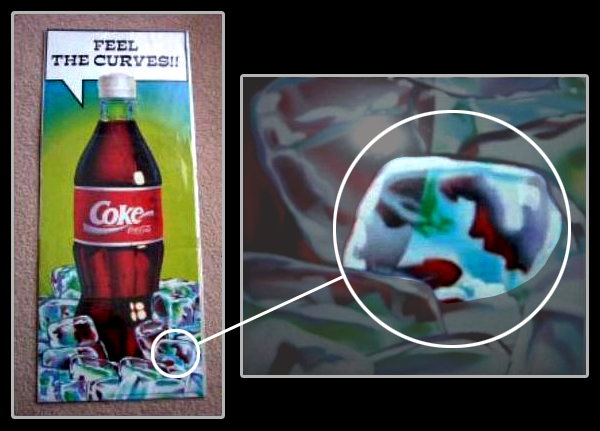
Coca-Cola poster "Feel The Curves!!" 1995
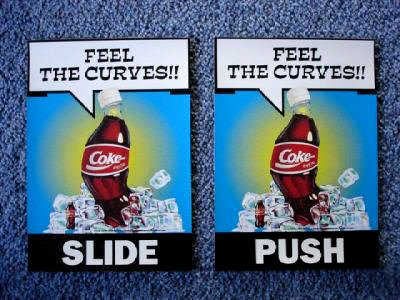
Coca-Cola "Feel The Curves" slide push 1995
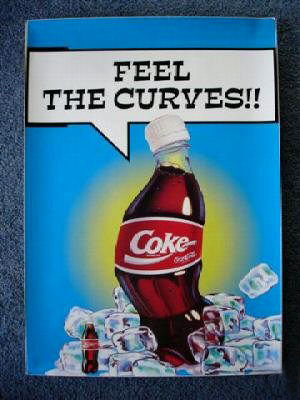
Coca-Cola "Feel The Curves" another poster 1995
Coca-Cola has done a lot of posters with American planes. Throughout their history, posters have been a significant means of mass communication, often with striking visual effect.
The posters were framed and hung in bottling plant lobbies, schools, and other places. Students were instructed on the airplanes so that they knew the difference between friendly planes and enemy aircraft in preparation for bomb drills.
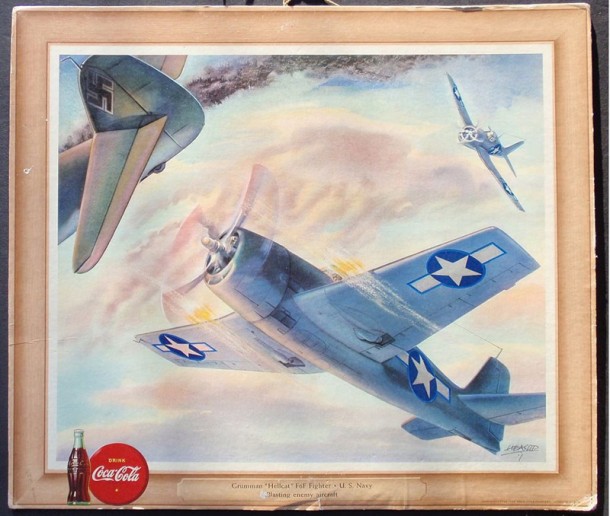
Grumman "Hellcat" F6F Fighter - U.S. Navy 1943
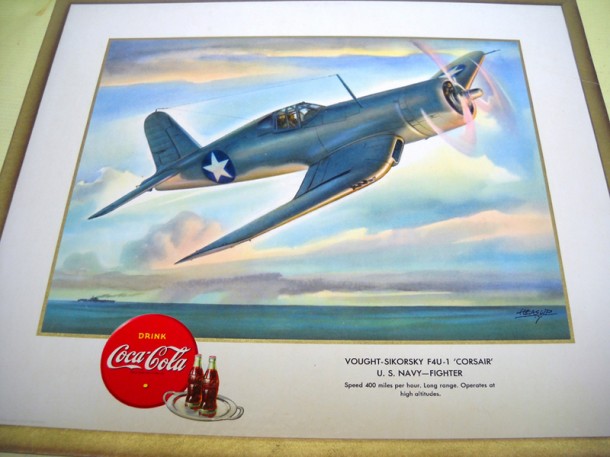
F4U-1 "Corsair" U.S. Navy - fighter 1943
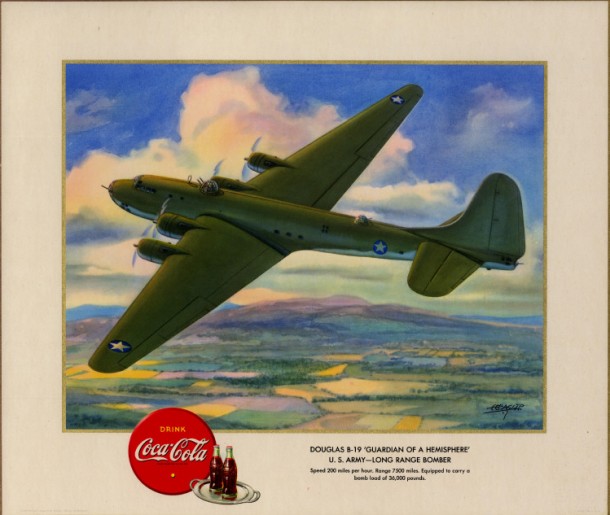
Douglas B-19 "Guardian of a Hemisphere" U.S. Army - Long Range Bomber
In the late 1960’s, Coca Cola spread out a huge amount of birdseed in St. Mark’s Square in the shape of their logo. It was immediately covered/consumed by 100’s of pigeons who clearly spelled out the Coca Cola logo, the aerial publicity photo was taken and it remains a very famous/infamous piece of advertising today.
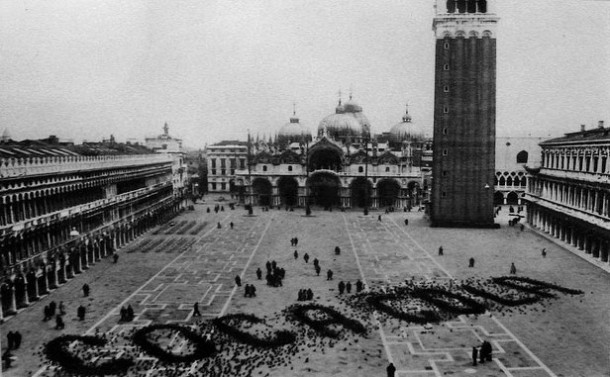
Coca-Cola St Marc's square in Venice 1960s
This newspaper ad from 1951 years is really weird, someone was selling ice cold Coca-Cola for 7 cents and getting 2 cents more than the rest of the country.
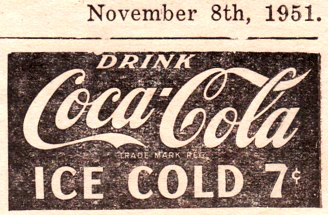
Newspaper ad from 1951, Coca-Cola for 7 cents
Maybe this somehow related to these ads from 1947 and 1949, where was 2 cents wartime tax included or maybe not…
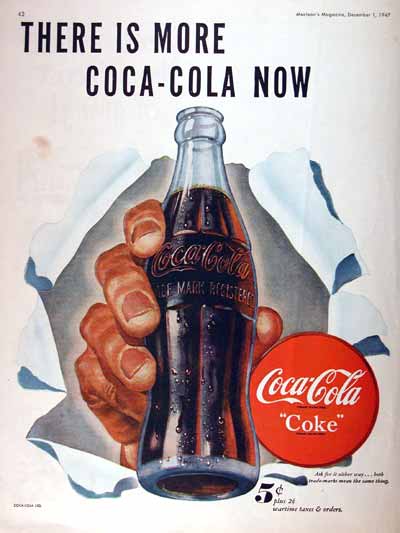
1947 Coca Cola advertisement. Illustrated in vibrant color. Includes 2¢ wartime tax special pricing.
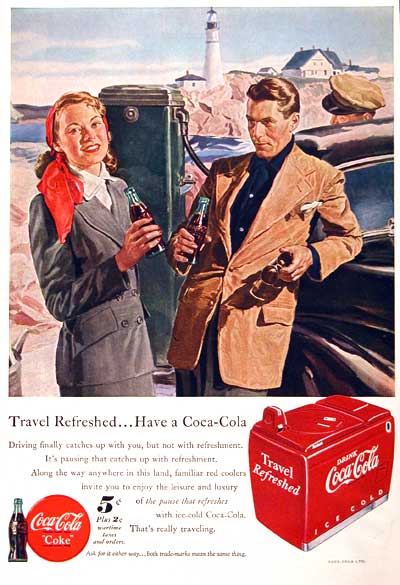
1949 Coca Cola advertisement. Illustrated in vivid color at the seaside with an ice cooler below. Price still included the 2¢ wartime tax.
Why have a dull soda season? Coca-Cola, like tea and coffee, is a year around drink. Hold your summer trade by serving Coca-Cola both hot and cold through the winter season.
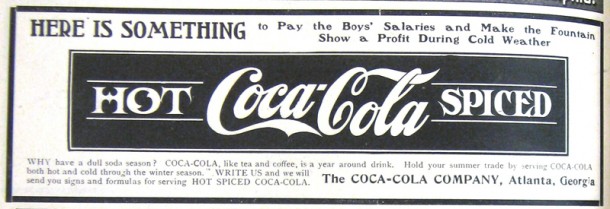
Hot Coca-Cola spiced ad 1907
Airplane spotter’s plane identification tips and hints on playing cards with Coca Cola advertising. These cards were prepared by Coke to “assist you in learning the characteristics of United Nations and Enemy Aircraft.”
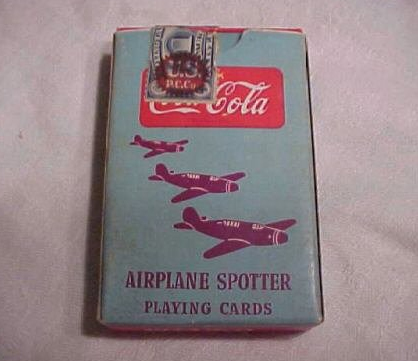
Coca-Cola airplane spotter cards
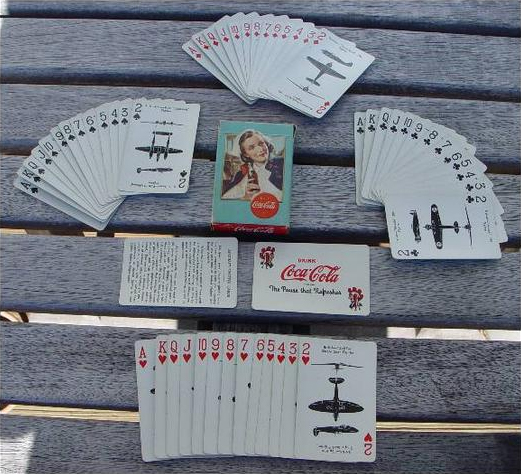
Coca-Cola airplane spotter cards 2
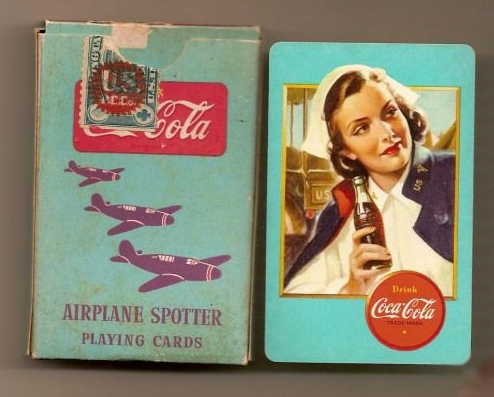
Coca-Cola airplane spotter cards 3
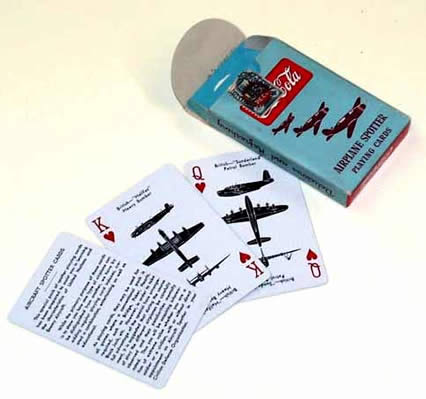
Coca-Cola airplane spotter cards 4
Spotter cards are still used by the armed forces today. For example, personality identification playing cards were recently distributed in Iraq in order to train soldiers to spot individuals such as Saddam Hussein.
In 1925 Coca Cola made a lucky watch fob in the shape of a swastika with the slogan, “Drink Coca Cola five cents in bottles.” At that time, the Swastika was still a symbol of ‘Good Luck’. The watch fob is approximately 4cm x 4cm in size and is made of brass.
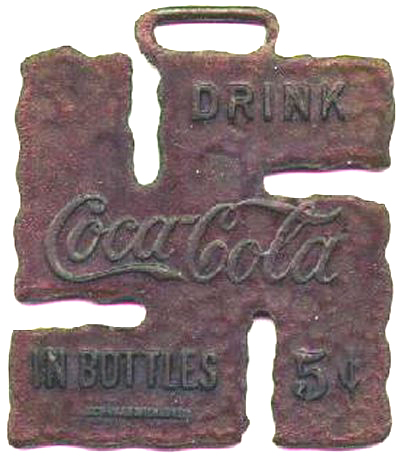
Coca Cola swastika



























